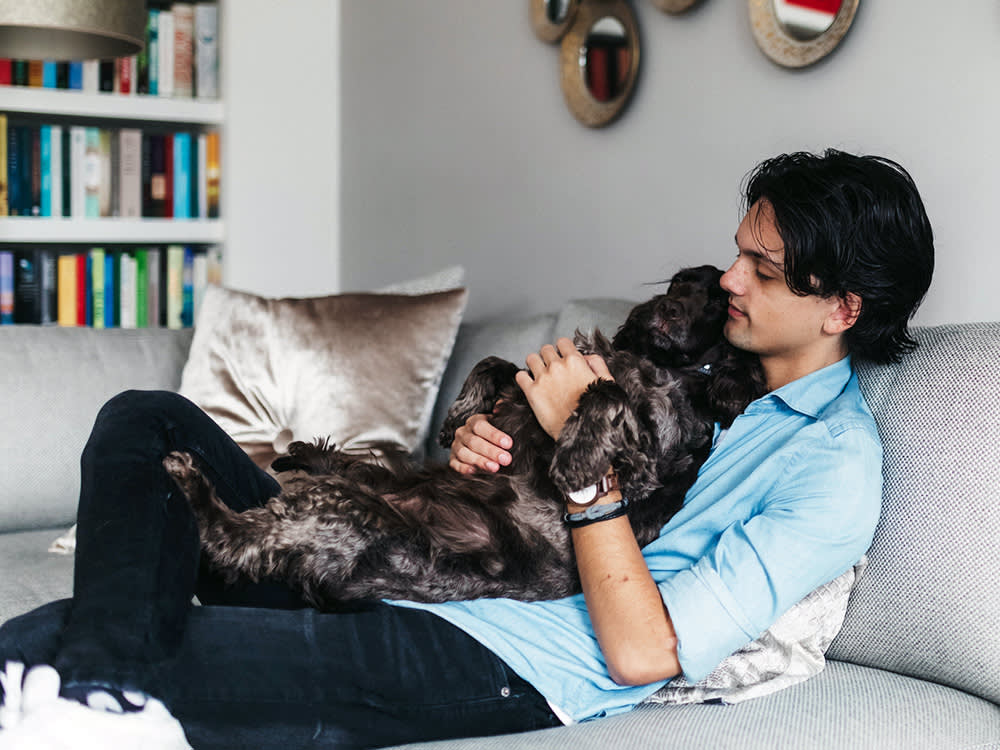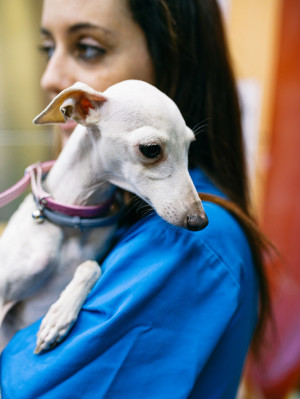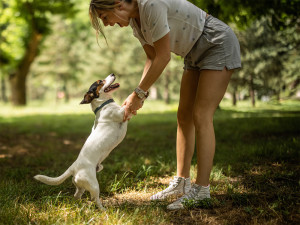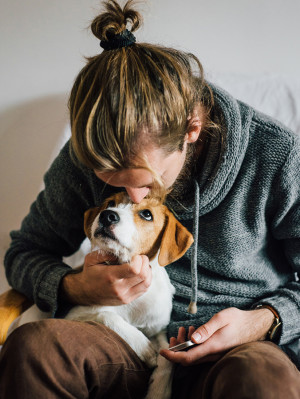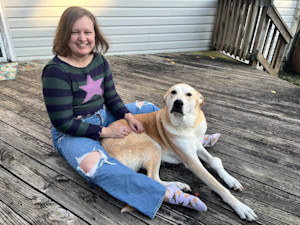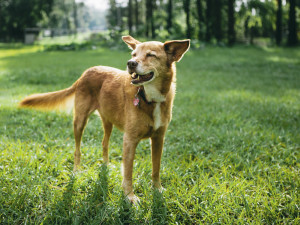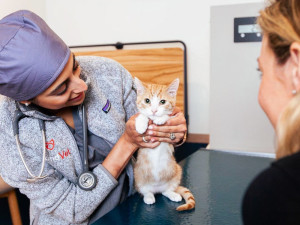6 Ways to Keep Your Dog Safe From the Respiratory Illness Sweeping the U.S.
Don’t panic about the mysterious illness affecting dogs in the U.S. Instead, take these steps to protect your pup.
It’s that time of year when flu and other viruses seem to jump from person to person like wildfire. Dogs are no different, and while you can’t give that obnoxious cold bug to your pet (and they can’t pass on their sniffles to you), canine respiratory illnesses are definitely a problem — especially when your pup can’t stop coughing.
With a recent influx of reported cases of canine respiratory illness in over a dozen states (and counting), many dog parents are concerned that we’re seeing a brand-new, COVID-like illness among our four-legged friends. But experts emphasize that, while the exact strain of respiratory illness is unknown, there is no need to panic. However, if you want to keep your dog healthy, there are steps you can take to help your pet avoid catching a respiratory illness.
Snap a pic of your pup’s teeth, and GREENIES™ will help you spot potential signs of oral health issues.
Veterinarian Dr. James Barropens in new tab, DACVECC, chief medical officer at BluePearl Pet Hospital, offers some suggestions for preventing your dog — and any pup in your life — from catching the latest bug.
“With any infectious disease, you should be concerned,” Dr. Barr says. “We don’t know a ton about what the cause of this issue is at the moment, but it behaves similarly to other known diseases. The best thing you can do is just try not to expose your pets unnecessarily.”
How much do you spend on your pet per year?
1. Make sure your dog is up-to-date on vaccinations.
The best defense against any form of canine infectious respiratory disease complex (CIRDC, often referred to under the umbrella term “kennel cough”) is ensuring that your dog is fully vaccinated against the most common strains of disease.
“The best thing to do is to make sure your pets have the most protection,” Dr. Barr says. “Make sure they’re vaccinated for the known diseases. Vaccinations for Bordetella and canine influenza are something that I would start with as a way to protect them.”
These two vaccinations can help keep your dog from developing a more severe case of these illnesses, making recovery faster and their symptoms lighter. So, if your pup is overdue for their annual boosters, make that vet appointment today.
2. Avoid large gatherings of dogs.
While you may be planning big holiday gatherings with family, it’s a good idea to keep your dog away from groups of strange dogs. That may mean taking a break from doggy daycare, avoiding boarding, and skipping the local dog park.
“Any time you get a lot of pets around each other, the chances of spreading germs is a lot higher,” Dr. Barr says. “So boarding, doggy daycare, dog parks — it might be best to avoid those at the moment. But you still want your dog to be a dog and have fun. Just be cautious.”
Finding alternatives to dog boarding can be a challenge during this popular travel season, so if you still need to leave your dog behind while you’re away, consider hiring a pet sitter or talk to your boarding facility about their precautions against illness. It’s also a good idea to schedule a health check-in with your vet before exposing your dog to any of these group situations.
3. Know if your pup is at risk.
Just like people, some dogs are more prone to severe illness. Young puppies and older dogs are more likely to struggle with canine respiratory illness, so pet parents should be extra cautious. Similarly, if your dog has a chronic health concern or weaker immune system, try to keep them homebound as much as possible to limit their chances of getting sick.
4. Watch out for symptoms.
This latest strain of CIRDC presents just like any other form of kennel cough, so make sure to keep an eye on your dog for any of these symptoms:
Excessive coughing
Lethargy
Difficulty breathing
Loss of appetite
Sneezing
Runny nose and eyes
Fever
Any of these signs could point to a case of canine respiratory illness, which means you should get your dog to the vet right away. Most cases are mild and don’t even require medication, but it’s a good idea to have your pup checked out and get a professional opinion from your veterinarian.
“Signs of respiratory problems with dogs are coughing, especially coughing that might turn into retching and happens repeatedly,” Dr. Barr says. “Other signs that could be a part of this illness are runny nose, sneezing, water eyes, and rapid breathing in extreme circumstances. Just be mindful of your pet’s behavior, and if they’re showing signs, contact your vet.”
5. Keep sick dogs at home.
If your dog shows any symptoms of illness, no matter how mild, keep them at home. Even if your pup can easily recover from a bout of respiratory illness, they could pass the bug on to another dog who could develop a more severe case. By preventing your dog from passing on their sickness, you can help keep other pets safe — and slow the disease’s spread.
6. Trust your veterinarian — and know when to ask for help.
The internet is full of information, but not all of it is accurate or verified. Instead of panicking at the latest TikTok about canine respiratory illness, reach out to your veterinarian with any questions or concerns. Your vet understands your dog’s health and medical history, and they can provide you with the right recommendations for treatment — and help allay your fears. Not only should you keep an eye out for any symptoms of illness in your dog, but you should also know when it’s time to visit the vet.
“The relationship with your veterinarian is really important,” Dr. Barr says. “Any time people have questions about the health of their pet, they should reach out to their veterinarian.”
